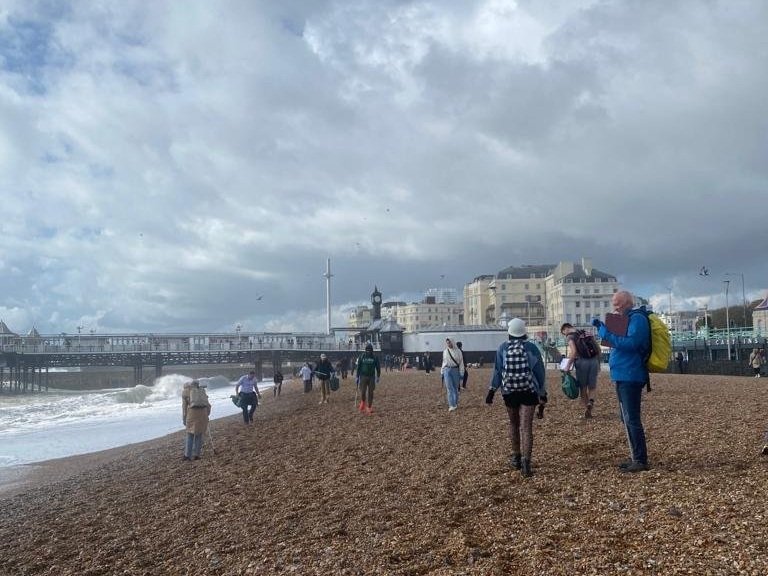Do beach cleans really make a difference?
Despite inclement weather, the team was still ready to go.
Last week Itero participated in the Great British Beach Clean, a nation-wide initiative organized by The Marine Conservation Society (MCS), which encourages individuals and organisations to clean up the UK’s beaches.
We recognize that only through the cooperation and close partnerships of a range of different organisations, stakeholders, and policy can we achieve our mission of a fully circular plastics economy. The work the Beach Clean does has a twofold effect of 1. reducing existing litter on beaches and 2. provides data to help MCS catalyse policy change to reduce litter at its source; both work together to help mitigate the plastics and biodiversity crises.
How the Beach Clean drives policy change towards a circular economy
MORE THAN JUST A REACTIVE MEASURE, THE BEACH CLEAN HELPS THE MCS PROACTIVELY DRIVE POLICY CHANGE TOWARDS A CIRCULAR ECONOMY.
We are living through a triple planetary threat of interconnected crises: a biodiversity crisis, a plastics waste crisis, and a climate crisis. The impact of the plastics pollution crisis and climate crisis on our beaches and marine ecosystems is devastating. For biodiversity, 37% of marine mammals are facing extinction. This Beach Clean provides a vital opportunity to reduce existing plastic pollution and address further pollution.
It is, however, more than just a reactive measure. Data collected by the Marine Conservation Society throughout the Beach Clean is preventative, driving conservation efforts and policy change. As MCS writes: “Our data has been used to make a positive impact on our ocean - including the introduction of the plastic bag charge, banning microplastics in personal care products, better wet wipe labelling, and supporting a tax on single-use plastic items.”
For instance, Beach Clean data revealed that over the last ten years drinks litter, such as plastic bottles and aluminium beverage cans, were the biggest source of litter in England. They used this data to focus their policy efforts on urging the creation of a Deposit Return Scheme in England, which the UK Government announced plans for in January 2023.
One important insight from last year’s Great British Beach Clean revealed: “An average total of 83 items were found per 100m beach stretch surveyed, representing a 50% decrease from 2021.” (Reference)
Our work participating in the Beach Clean reduces the waste on our beautiful beaches and empowers an organisation we believe in to create lasting circular policy changes, enabling us to achieve the systemic change we need to accelerate towards full plastics circularity.
During the clean yesterday, alongside other teams, we removed 2693 items from a 100m section of beach, totalling 40kg for the day. The full results of this year's Great British Beach Clean are not yet available, but you can see here last year's full insights.


